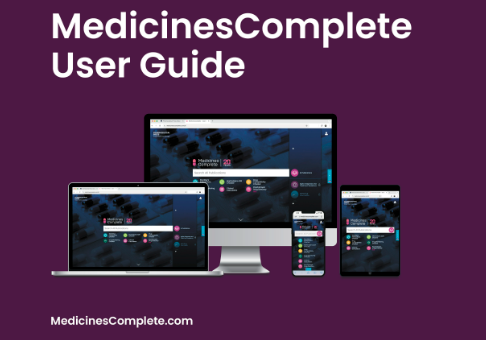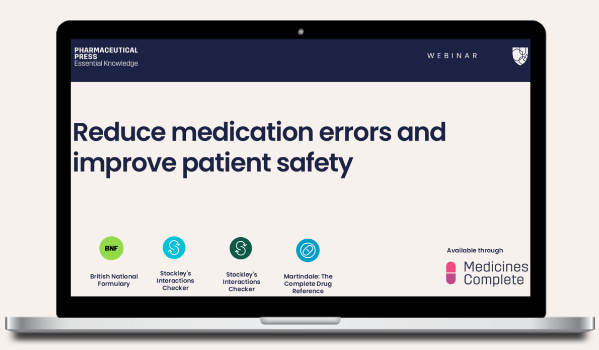Agilio: Diagnosis and Treatment Guidance October 2024 Update
This update contains 9 significant changes and 20 minor changes.
Significant Changes:
- Bipolar disorder — reviewed and updated. A literature search was conducted in July 2024 to identify evidence-based guidelines, UK policy, systematic reviews, and key randomized controlled trials published since the last revision of this topic. No major changes to the recommendations have been made.
- Cholesteatoma — reviewed. A literature search was conducted in July 2024 to identify evidence-based guidelines, UK policy, systematic reviews, and key randomized controlled trials published since the last revision of this topic. The topic has undergone minor restructuring, to improve clarity and navigation. No major changes to recommendations have been made.
- Healthcare-associated infections — reviewed. A literature search was conducted in June 2024 to identify evidence-based guidelines, UK policy, systematic reviews, and key randomized controlled trials (RCTs) published since the last revision of this topic.
- Hypercalcaemia — reviewed. A literature search was conducted in July 2024 to identify evidence-based guidelines, UK policy, systematic reviews, and key randomized controlled trials published since the last revision of the topic. The topic has undergone minor restructuring. The definitions of severity have been slightly amended in line with current literature. This is a condition which usually involves referral to secondary care, and an attempt has been made to clarify recommendations for primary care clinicians based on or extrapolated from available guidelines and expert opinion.
- Leg ulcer – venous — reviewed. A literature search was conducted in July 2024 to identify evidence-based guidelines, UK policy, systematic reviews, and key randomized controlled trials published since the last revision of the topic. There have been minor structural changes to align the topic with recommendations provided in updated literature sources.
- Neutropenic sepsis — reviewed. A literature search was conducted in June to August 2024 to identify evidence-based guidelines, UK policy, systematic reviews, and key randomized controlled trials published since the last revision of the topic. There have been no major changes to the recommendations. Quality statements temporarily removed from this topic due to ongoing updates to NICE guidelines on sepsis, which underpin the quality statements.
- Roundworm — reviewed. A literature search was conducted in July 2024 to identify evidence-based guidelines, UK policy, systematic reviews, and key randomized controlled trials published since the last revision of the topic. No major changes to clinical recommendations have been made.
- Scarlet fever — reviewed. A literature search was conducted in September 2024 to identify evidence-based guidelines, UK policy, systematic reviews, and key randomized controlled trials (RCTs) published since the last revision of this topic.
- Self-harm — reviewed. A literature search was conducted in July 2024 to identify evidence-based guidelines, UK policy, systematic reviews, and key randomized controlled trials published since the last revision of this topic. The topic has undergone restructuring. No major changes to the recommendations have been made.
Minor Changes:
- Addison’s disease — minor update. Information about the interpretation of cortisol levels from the NICE guideline Adrenal insufficiency: identification and management has been incorporated into the diagnosis section of this topic.
- Attention deficit hyperactivity disorder — minor update. Minor text changes have been made in the section on Definitions.
- Alopecia areata — minor update. Ritlecitinib added to the specialist management options for severe alopecia areata.
- Atrial fibrillation — minor update. Minor typographical error corrected in the QOF indicators section.
- Chlamydia – uncomplicated genital — minor update. Information on asymptomatic screening in people aged under 25 years has been updated in line with the National Chlamydia Screening Programme.
- Chronic kidney disease — minor update. A minor typographical error has been corrected.
- Common musculoskeletal presentations in children — minor update. The name of the topic changed to ‘common musculoskeletal presentations in children’ from ‘developmental rheumatology in children’.
- Corticosteroids – topical (skin), nose, and eyes — minor update. Information relating to the potency of topical corticosteroids has been updated to reflect the new MHRA potency labeling system for topical corticosteroids.
- CVD risk assessment and management — minor update. Recommendations on physical activity have been clarified.
- Epilepsy — minor update. A new section about contraceptive advice to give men with epilepsy has been added in line with the MHRA drug safety update Valproate use in men: as a precaution, men and their partners should use effective contraception.
- Hand, foot, and mouth disease — minor update. Typographical error was corrected.
- Immunizations – seasonal influenza — minor update. Topic has been updated to reflect August updates made in the UKHSA publication National protocol for inactivated influenza vaccine.
- Lipid modification – CVD prevention — minor update. Added recommendation on adding icosapent ethyl.
- Measles — minor update. Revised information on management and contacts to align with the NHS England guidance Measles guidance for primary, community care, emergency departments and hospital.
- Migraine — minor update. Revised wording on typical migraine symptoms.
- Polycythaemia/erythrocytosis — minor update. Revised advice on management of apparent erythrocytosis to advise that these people need no further investigations.
- Prostate cancer — minor update. Added AoMRC reference to the assessment table for PSA level.
- Seborrhoeic dermatitis — minor update. Information relating to the potency of topical corticosteroids has been updated to reflect the new MHRA potency labeling system for topical corticosteroids.
- Sepsis — minor update. Quality statements temporarily removed from this topic due to ongoing updates to NICE guidelines on sepsis, which underpin the quality statements.
- Shingles — minor update. Information about severely immunosuppressed individuals who received Zostavax prior to becoming immunosuppressed has been added in line with an update to the UKHSA Shingles vaccination guidance.





